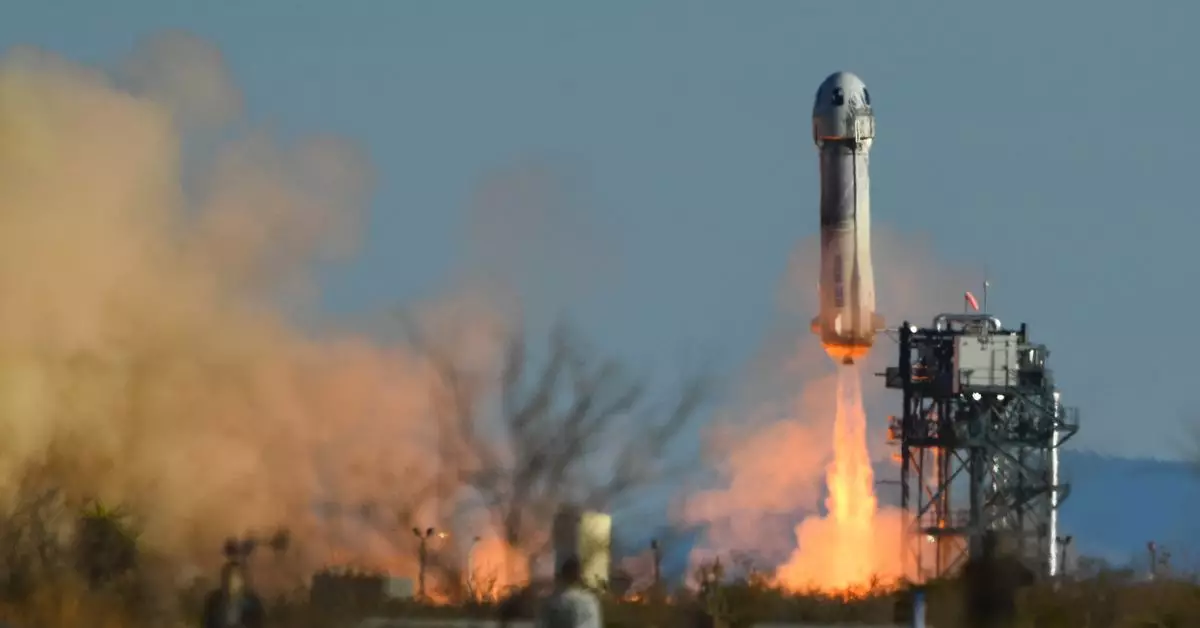Blue Origin, the aerospace company founded by Jeff Bezos, is gearing up for its NS-27 spaceflight mission scheduled for Monday at 9 AM ET. This launch will mark the inaugural flight of the RSS Kármán Line, Blue Origin’s newly developed crew capsule. With promises of enhanced performance and reusability, this capsule comes equipped with an updated exterior and features designed to carry payloads more efficiently than its predecessors.
The NS-27 mission is noteworthy not only for its launch of a new capsule but also for the various payloads it intends to carry into space. Among the payloads are two LIDAR sensors integral to Blue Origin’s Lunar Permanence program, focusing on the development of lunar landers. Additionally, the mission includes a range of other payloads like ultra-wideband proximity operations sensors and a reproduction of the iconic black monoliths from Stanley Kubrick’s “2001: A Space Odyssey.” Unique as well are the student postcards submitted through the Club for the Future initiative, seeking to inspire future generations about space exploration. These diverse payloads reflect Blue Origin’s commitment to both scientific progress and educational outreach.
For those eager to witness this landmark event, Blue Origin will provide a live stream of the launch via its official website, starting 15 minutes prior to liftoff. This proactive approach to public engagement allows enthusiasts and the general public to participate in the excitement of space exploration from the comfort of their homes. Such initiatives contribute to fostering a culture of interest in STEM fields, particularly among younger audiences.
The NS-27 mission represents more than just a routine launch; it’s a strategic maneuver inBlue Origin’s quest to position itself as a formidable competitor to SpaceX. Under the leadership of CEO Dave Limp, a former Amazon executive, Blue Origin is pivoting towards rapid production capabilities. Limp identifies the necessity of becoming “a world-class manufacturer” — a process that involves ramping up the production of rocket engines significantly.
Blue Origin’s aspirations do not stop with the NS-27 mission. Plans are underway to launch New Glenn, a large reusable booster, with its maiden flight slated for November. With the capability to deliver over 99,000 pounds into low Earth orbit, New Glenn positions Blue Origin to leverage significant payload advantages compared to SpaceX’s Falcon 9. The ambitious aim to land the booster on its first flight adds an additional layer of innovation that could redefine cost-efficiency in space travel.
Blue Origin’s NS-27 mission exemplifies the company’s commitment to both lunar exploration and advancing manufacturing processes. The blending of cutting-edge technology with public engagement initiatives highlights a forward-thinking vision that seeks not only to compete in the burgeoning space industry but also to inspire future generations. As the mission unfolds, the outcomes will not only influence Blue Origin’s trajectory but could also shape the landscape of private space exploration as a whole.

